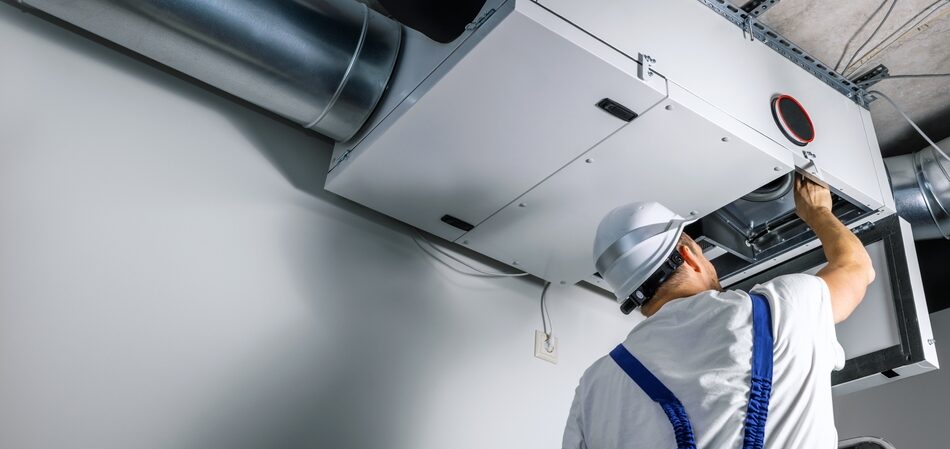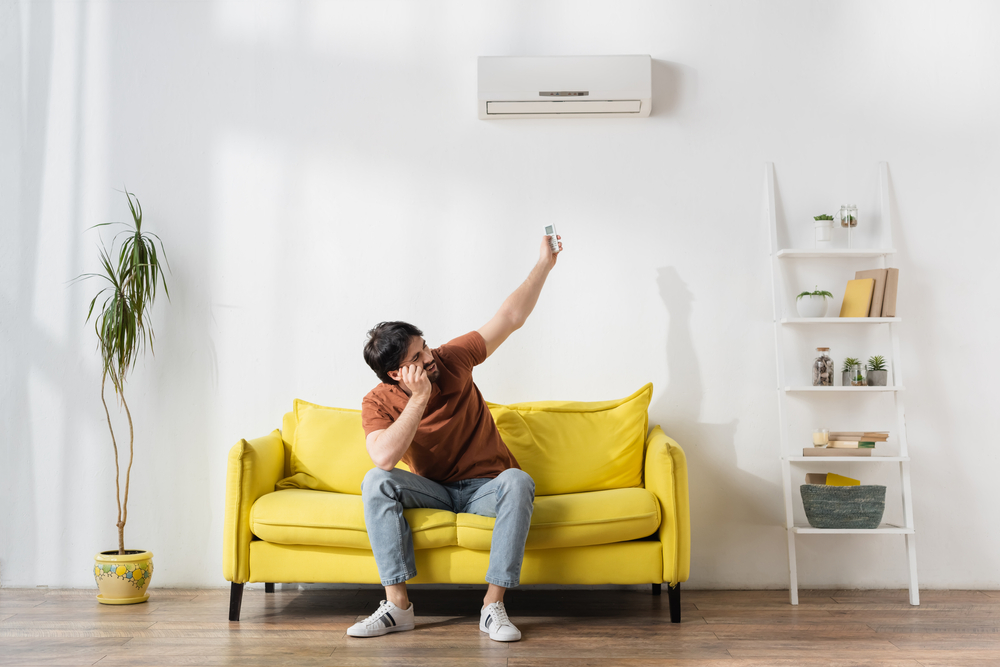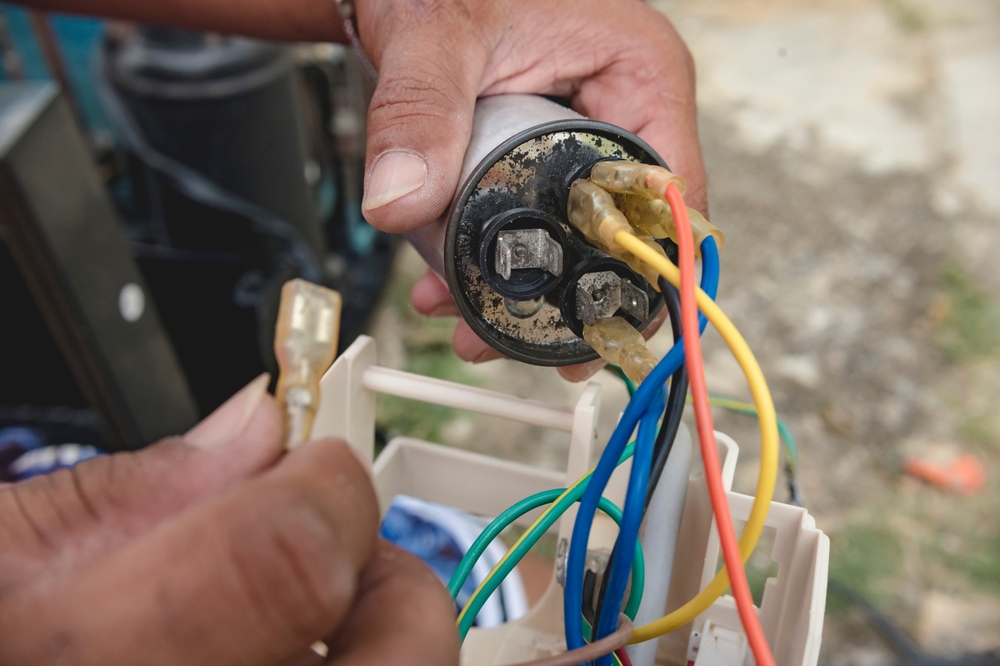
The comfort of your home relies heavily on the efficiency of your heating and cooling system. It’s the best way to maintain optimal temperatures during the winter chill and the summer heat, ensuring your home is always perfectly comfortable. However, like every other technical aspect of our homes, HVAC systems have a lifespan, and knowing when to replace them can be a game-changer for your comfort and your pocket.
In this article, we’ll discuss the signs your heater or air conditioner might need replacing, the benefits associated with this, whether you should repair or replace, and the approximate lifespan of different systems.
A cutting-edge HVAC system is a key player in your home’s overall functionality, comfort, and environmental footprint. The advantages of investing in a new heating and cooling system are numerous, for reasons of cost efficiency, indoor air quality, and environmental sustainability.
One benefit of a modern heat pump or air conditioning unit system is its energy efficiency. With more advanced technology, these systems are capable of producing the same level of heating or cooling as their older counterparts but at a fraction of the energy cost. As a result, homeowners can expect a significant decrease in their energy consumption and, by extension, their energy bills. If you’ve noticed a consistent rise in your energy costs, despite no equivalent change in your energy usage, it may be a sign that your current climate control system is not operating as efficiently as it could be.
Beyond the financial advantages, newer heating and cooling systems also offer a considerable improvement in the comfort level of your home. They are better at maintaining consistent indoor temperatures, eliminating the discomfort of hot or cold spots. Modern HVAC systems also come equipped with superior air filtration technology. This feature works wonders in reducing the presence of dust, allergens, and other indoor air pollutants, improving the overall air quality in your home. If you or a family member suffers from allergies or other respiratory issues, upgrading your HVAC system could significantly alleviate those symptoms.
Lastly, and perhaps most importantly, is the environmental impact of a new HVAC system. In an era where sustainable living is no longer just a trend but a necessity, choosing an energy-efficient HVAC system aligns with global efforts to reduce greenhouse gas emissions. By consuming less energy, these systems create fewer emissions, making your home greener and more eco-friendly. It’s an investment that not only benefits you and your family, but also the environment at large.
Looking to install a new, eco-friendly cooling and heating system in Healesville, Box Hill or Camberwell? Australian Climate Systems’ trusted technicians and quality brands are sure to have your home comfortable again!
Recognising the signs that suggest your heating and cooling system may be due for replacement can be tricky. However, understanding these indicators can save you from unexpected breakdowns and skyrocketing energy bills.
One of the most crucial factors to consider is the age of your system. On average, most HVAC systems are designed to last about 10 to 15 years. So, if your heating and cooling system falls within this age bracket and is giving you a hard time, it might be more financially savvy to invest in a new energy-efficient model. There’s no need to pour money into repair costs on a unit that likely won’t last much longer!
If you find yourself calling your HVAC technician more frequently than you call your friends, it could be a clear sign that your system is nearing its end. Frequent repairs indicate underlying issues that might require substantial investments to fix. In these cases, it may be better to use this money to purchase a new unit entirely.
Another sign is a sudden spike in your utility bills. If you notice your bills are steadily increasing but your usage pattern hasn’t changed, it could be a sign that your HVAC system is losing its efficiency. As systems age, they have to work harder to maintain the same level of comfort, resulting in higher energy consumption.
While these symptoms might seem alarming, they don’t necessarily mean your HVAC system needs immediate replacement. It might be a minor issue that needs fixing, or it could be a sign that your system is not being maintained properly. Regular servicing can help identify potential issues.
However, if you’re experiencing more than one of these signs, it’s advisable to consult a qualified climate control professional. They can thoroughly inspect your system, diagnose the problem, and provide you with an informed recommendation on whether repair or replacement would be the most cost-effective solution.

When you’re faced with a malfunctioning heating and cooling system, the dilemma often boils down to two primary options: should you undertake the heating and cooling repair process, or replace it altogether? This decision can significantly impact your household comfort, energy efficiency, and finances.
The first factor to consider is cost. Repairs can be a cost-effective solution if it is a simple repair and your system is relatively new. However, if you find yourself constantly calling your HVAC technician for frequent repairs, the costs can quickly add up. In such cases, you should weigh the cumulative cost of these repairs against the price of a new system. You might find that the initial cost outlay of a new system will quickly pay itself off if you’re shelling out for repairs all the time!
The second factor is the age of your HVAC system. On average, HVAC systems are designed to last between 10 to 15 years with regular maintenance. If your system is nearing or has surpassed this age range and is causing you problems, it might be wise to invest in a new system.
Energy efficiency is the third factor to consider. Modern HVAC systems are designed with energy conservation in mind. This means they consume less power to produce the same amount of cooling or heating as their older counterparts. If you’re tired of high cooling costs, talk to a specialist about a new, more energy efficient model.
But how can you tell if your system is energy efficient? Look for the Energy Rating Label on non-ducted systems. The more starts, the more energy-efficient the system. If your current system has a low star rating, it might be time to consider an upgrade.
However, the decision to repair or replace isn’t always black and white. There are other factors that could sway your decision. For instance, if you’re planning to sell your home in the near future, a new HVAC system could increase its market value. Likewise, if you’re dealing with a discontinued model, finding replacement parts could be challenging for repairs.
The longevity of HVAC systems is not a simple question. It can differ significantly based on the type of system, its usage, and maintenance regimen. Regular servicing prolongs your HVAC system’s lifespan by ensuring efficient operation and early detection of potential issues.
The average lifespan of different types of heating or cooling systems are:
As you can see, different units have drastically different optimal periods of operation. However, one key action on your part can universally keep them running well for longer: regular maintenance.
Regular maintenance is the cornerstone of a long-lasting HVAC system. This includes routine checks, cleaning, and replacing air filters, which not only extend the life of the system but also enhance its efficiency, contributing to lower energy bills.
To make the most of regular maintenance, invest in professional maintenance. A trained climate control technician can spot and rectify potential problems before they become major issues. Second, try to maintain a stable temperature in your home. Constantly changing the thermostat can put additional strain on your system. And finally, ensure your system is the right size for your home. A system that is too large or too small will have to work harder, reducing its lifespan.
However, it’s also important to recognise that sometimes, despite our best efforts, HVAC systems may fall short. Factors such as excessive use, harsh weather conditions, excessive dust in your home, clogged filters and lack of regular maintenance can contribute to a shorter lifespan. For example, a cooling system that is constantly running in an extremely hot climate will likely wear out faster than one in a temperate region.
Struggling with your ducted heating in Vermont, Mooroolbark or Kew? Call Australian Climate Systems for a fast and effective solution!

Replacing your heating and cooling system is a significant undertaking, but understanding the process can help it feel less overwhelming. The process usually consists of three steps: system selection, installation, and testing. Let’s delve into these steps in more detail.
Firstly, selection is an essential step in the replacement process. There are various types of heating and cooling systems to consider, each with their unique features and benefits. You need to think about factors like your local climate, your home’s size, and desired energy efficiency. It’s also crucial to consider the system’s lifespan, as different climate control systems can vary in longevity based on their type and maintenance levels. While you can do your own research, a qualified HVAC professional can guide you through the selection process, offering expert advice tailored to your specific needs and circumstances.
The next step is the installation of your chosen system. This process involves removing your old unit and installing the new one, ensuring that all components are correctly fitted and connected. A professional heating and cooling technician will execute this with precision and care, minimising any disruption to your home. Remember, the quality of installation can significantly influence your system’s efficiency and lifespan, so it’s worth investing in a trusted professional.
After installation, the HVAC system will undergo rigorous testing to ensure it is operating as it should. The technician will check the system’s performance under various conditions, fine-tuning the settings for optimal comfort and energy efficiency. They will also make sure that the system delivers consistent temperatures and superior air quality for comfort.
While the installation timeframe can vary depending on complexity, typically, you should expect the process to take a couple of days. Your chosen climate control professional at Australian Climate will provide a more precise timeline based on your specific situation.
There are several types of HVAC systems, each with unique characteristics. Split systems are the most common, comprising an outdoor unit housing the compressor and condenser, and an indoor unit with the fan and the air conditioning coil. Ducted systems, on the other hand, use a network of ducts to distribute conditioned air throughout the home. Evaporative coolers, perfect for hot, dry climates, use the process of evaporation to cool the air.
Regular servicing maintains the efficiency and longevity of your HVAC system. Professionals at Australian Climate recommend servicing at least once a year. Regular maintenance checks can identify potential issues before they get worse, saving you from expensive repairs later down the line and extending the system’s lifespan.
The cost of replacing an HVAC system can vary significantly depending on the type of system, the size of your home, and the specific requirements of the installation. While the upfront cost may seem substantial, the long-term savings on energy bills and improved home comfort make this a worthwhile investment.
Telltale signs that your HVAC system may need replacement include frequent repairs, rising energy bills, or inconsistent indoor temperatures. If your system is over 10-15 years old, replacement might be more cost-effective than continuing repairs.
When selecting a new HVAC system, consider your local climate, the size of your home, and your desired level of energy efficiency. It’s important to choose a system that meets your needs and circumstances for optimal performance and efficiency. If the cost of repairs is quickly becoming equal to the cost of a new unit, then it might be time to consider upgrading!
Modern heating and cooling systems are designed with energy efficiency as a priority. They consume less energy to provide the same level of heating or cooling, leading to fewer greenhouse gas emissions.
Installing a new heating and cooling system is not just about fancy new tech; it’s a way to completely revolutionise your home. A new HVAC system can significantly enhance your home’s comfort, energy efficiency, cost outlay and even your contribution to environmental conservation.
If you’re looking for a trusted heating and cooling provider in Melbourne, Australian Climate Systems is the number one choice. Our decades of experience and knowledgeable staff can assess your current system and recommend repair or replacement based on your unique situation.
Looking to upgrade to a newer, more efficient heating and cooling system? Contact us today for a free consultation and quote. Don’t put up with uncomfortable temperatures any more–choose Australian Climate Systems!